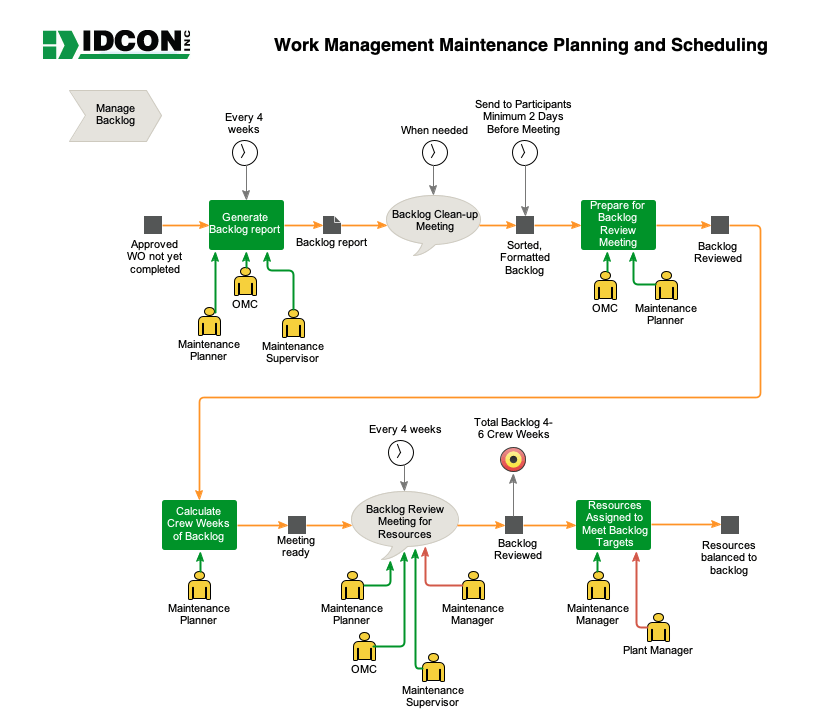What is an Operations Maintenance Coordinator?
An Operations Maintenance Coordinator job can be defined as “a person who is responsible for the coordination of operations and maintenance activities or the one point of contact between operations and maintenance. In this YouTube Video, Tor Idhammar and Owe Forsberg discuss why this role is smart to have in an organization, their role and what they should be doing.
As part of the organizational structure the Operations Maintenance Coordinator or OMC can be a partnership builder. Here’s a few reasons why.
It’s important for coordinating production and maintenance schedules. Instead of maintenance going to multiple people in operations they have a single contact (or if a large plant with many areas – 1 OMC per area). And conversely, the OMC is a point of contact for operations to contact maintenance. Instead of operations contacting maintenance directly with work requests, which can cause reactive maintenance.
What jobs does an Operations Maintenance Coordinator actually do?
- Helps clarify work requests through screening. Is the request clear? Is it the right priority?
- Helps to prioritize work requests with the maintenance supervisors
- Helps with schedules both weekly and shutdown work. The OMC knows the production schedule and when the best time for when planned maintenance work can happen

Is it a full time job?
It depends on the organization but we’ve seen lead operators or experienced production supervisor take on the role of coordinating with the maintenance supervisor. For scheduling, the OMC will help the supervisor by coordinating with operations for when equipment needs to be down for maintenance to access. At the end of the day, the maintenance supervisor and OMC will review what work was complete or needs to move to another day.
One key part of the screening process that the OMC can help with is emergencies. Some emergencies aren’t really emergencies based on the agreed upon priorities. The OMC, by screening the work requests can check if the work is really an emergency or not. If not, they can go back to the requestor and remind them of what an emergency is. This is key to protecting the plant from emotional priorities and reactive maintenance.
When the OMC screens requests, they are responsible for checking the backlog to see if the request is already logged. Here’s a great article about backlog, what it is and how to manage it.
Want to know what other key jobs are vital for reliability and maintenance at plants, mills or mines? Watch our What’s my job playlist on YouTube and turn on notifications as we add more.
Do you need help coaching your operations, maintenance or plant leadership in reliability and maintenance best practices? Contact us today





